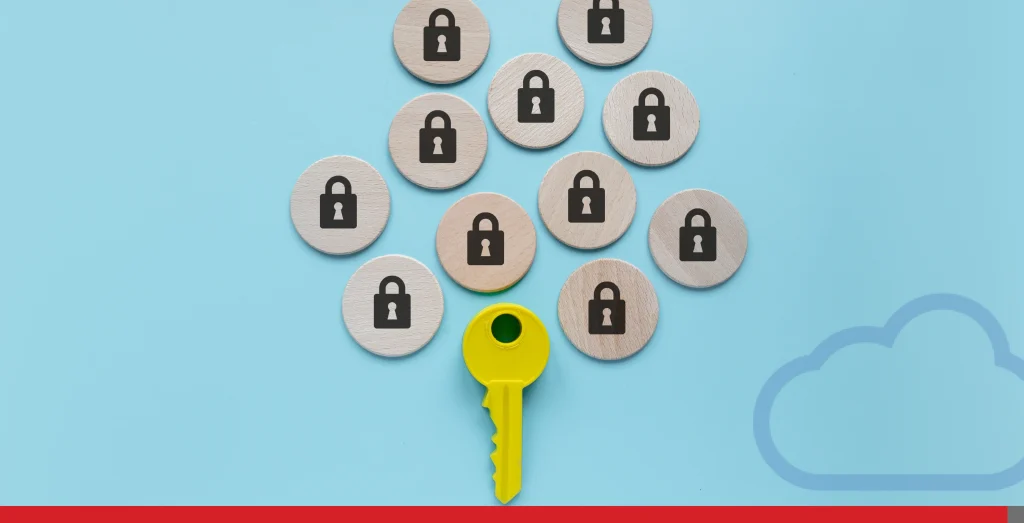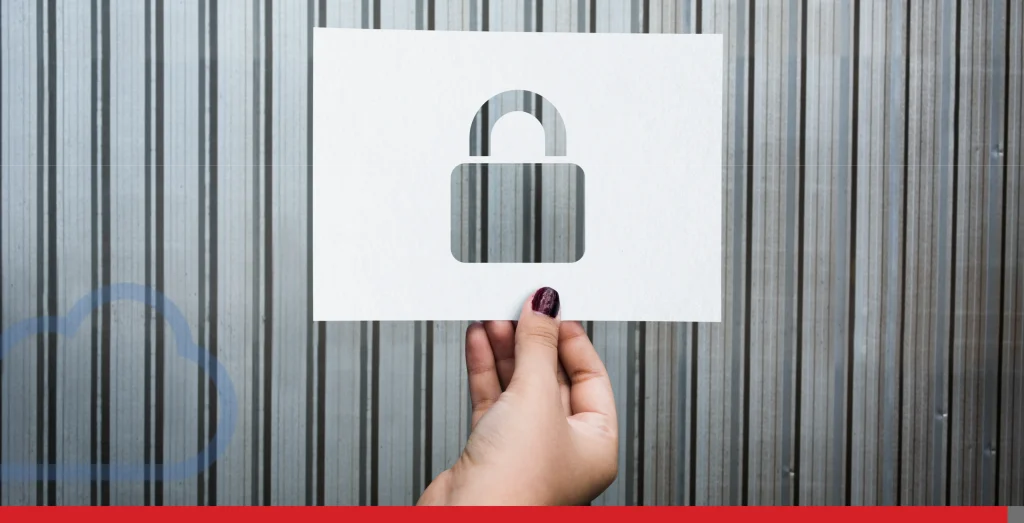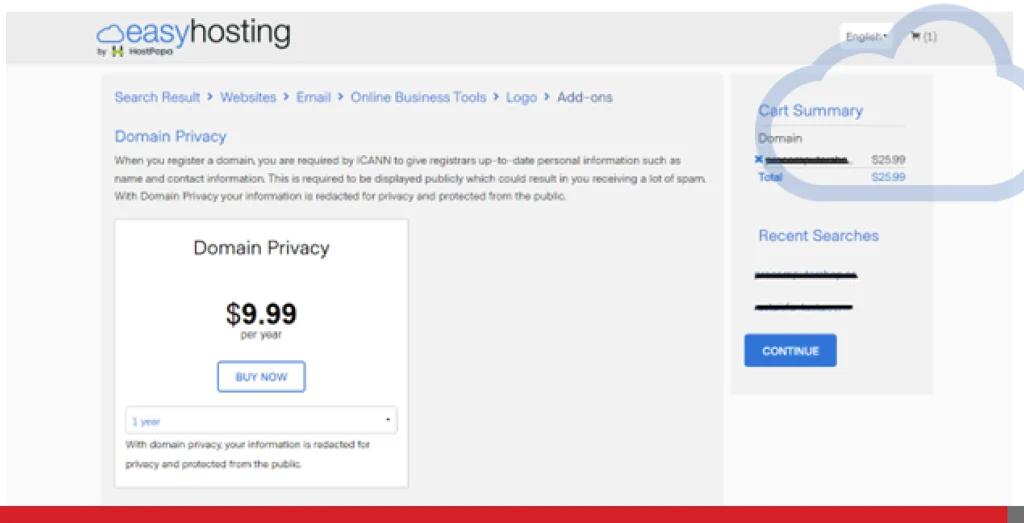Registering your own domain can be a challenging process in itself, but it’s more challenging when it comes to protecting your data. But did you know the core of this process also includes domain privacy?
Domain privacy, also known as WHOIS privacy, is a service that hides your personal information from the public WHOIS database. Without this service, your name, street address, and contact details are visible to everyone, putting you at risk of spam and identity theft. The importance of domain privacy cannot be overemphasized.
Hiding your personal information mitigates the risks associated with data exposure and keeps your web property and online presence safe. In essence, domain privacy is a protective layer for domain owners. Keep reading to understand how, why, and all the good reasons you must be protecting your domain starting today.
- What Is Domain Privacy?
- Why You Need WHOIS Privacy Protection
- How Domain Privacy Works
- Benefits of Domain Privacy
- Domain Privacy Options & Prices
- Legal Considerations & Restrictions
- Domain Privacy Protection Common Issues

What Is Domain Privacy?
Domain privacy is essentially a shield that replaces your personal details in the WHOIS database with information from a forwarding service.
The WHOIS database is designed to display registrant information for transparency in domain ownership publicly. But this transparency comes at a cost: exposing your personal data. Domain privacy services step in to mask these details and protect your identity while keeping registration compliant with ICANN policies.
When you enable WHOIS privacy, your actual contact details are replaced with the privacy service provider’s details. So, instead of your name and contact information, generic details are displayed, and your personal information is hidden from the digital world. This means you will be assigned names, addresses, and other details to mask your own.
Why You Need WHOIS Privacy Protection
Without domain privacy, your contact information is exposed in the WHOIS database, making you a target for spammers and malicious actors. This exposure can lead to a flood of unwanted emails, phishing attempts, and even identity theft.
Using domain privacy services means your personal contact information is hidden, reducing the likelihood of getting unwanted communications and protecting you from harassment. This way, no one will access your sensitive information.

How Domain Privacy Works
The mechanics of domain privacy involve two main components: the WHOIS database and proxy services. These work together to keep your personal information hidden, securing you and your privacy, but let’s get technical about what this means:
WHOIS Database & Privacy Protection
The WHOIS database is a decentralized system that contains domain ownership details. But this transparency can be a double-edged sword, as it exposes personal information to the public. Privacy protection services mask these details from public view, replacing personal information with generic data.
Enabling WHOIS privacy means your actual contact details are replaced with those of a proxy service, keeping registration compliance while protecting your human identity.
Proxy Services & Private Registration
Proxy services add an extra layer of anonymity by substituting your personal data with that of a proxy service in the WHOIS database. This hides your details and allows communication with the domain owner without revealing their actual identity.
Private registration, on the other hand, allows domain owners to keep their personal information hidden from public view while meeting registration requirements. Both proxy services and private registration are powerful tools that secure and anonymize domain registrants, making them vital for protecting your online identity.

Benefits of Domain Privacy
The benefits of domain privacy are many; that’s why it’s an essential service for anyone who values their personal information, as well as their organization details.
One of the biggest and most obvious benefits of domain privacy is the security it provides. Hiding your personal contact details makes it hard for spammers to harvest email addresses, reducing unwanted marketing emails. Less spam means a safer inbox and a lower risk of phishing attacks.
Also, as we’ve stated here, domain privacy’s main benefit is that it mitigates the risks of identity theft by masking your data from public view. Without this protection, you’re at risk of identity theft and harassment.
Domain Privacy Options & Prices
When it comes to domain privacy, you have several options to choose from, each with its own price tag. In our case, we want you to be safe while improving other aspects of your website, such as digital marketing services that can enhance your website’s SEO and look & feel.
EasyHosting right now offers a domain privacy solution that hides your personal data, protecting it from public exposure. You can add this layer of privacy protection for just $9.99 per year and keep your information private and secure. But how does it work?
- Go to EasyHosting’s Domains section, find Domain Privacy, and click Buy now.
- Add your domain TLD; this means the last part of your website, such as “.com”, “.net”, etc.
- Select Continue and choose any other EasyHosting service you would like to add.
- In the Add-ons stage, you can choose to add Domain Privacy to your purchase (picture below).
- Start enjoying your domain privacy protection!

Legal Considerations & Restrictions
For sure, legal considerations play a big role in domain privacy. Domain registrars are, by default, required to collect personal information as mandated by ICANN, so it’s available in the WHOIS database unless privacy protection is applied. This requirement emphasizes the importance of domain privacy services in protecting your personal data.
Inaccurate WHOIS information can lead to domain suspension or loss, so make sure your contact details are up-to-date and accurate.
ICANN Regulations & Compliance
ICANN enforces regulations that require registrars to gather registrant details to maintain accountability in the domain name system. This compliance ensures domain ownership is transparent and verifiable.
Some countries restrict WHOIS privacy services, limiting availability based on local laws. So, registrants must be aware of these regulations and keep their contact information up to date.
Geographic & Registry-Specific Rules
Some top-level domains, such as .ca, .cn, and .uk, restrict WHOIS privacy protection. These geographic and registry-specific rules require registrars to comply with local laws, impacting the availability of privacy services. ICANN requires registrars to comply with international privacy regulations like the GDPR in the European Union, so registrars must comply with applicable laws related to personal data processing.
Note: If you’re unsure if you’re following the legal considerations correctly, be sure to read all of ICANN’s requirements and updates on their official website.

Domain Privacy Protection Common Issues
One more step into managing your domain privacy effortlessly is to be aware of all issues that may arise. Despite the benefits of domain privacy, users may face issues like WHOIS data still being public or receiving verification requests that may compromise their privacy. Here are some tips to address the most common issues and keep your privacy intact.
Resolving WHOIS Data Publication Issues
One common issue users face is WHOIS data being published unintentionally, even when privacy protection is enabled. This can happen due to errors or delays in updating the WHOIS database. To resolve this, you should check the privacy settings and ensure they’re applied correctly through your domain registrar’s control panel.
If your WHOIS information is still public, contact your registrar for help to fix the issue. They can guide you on how to apply your privacy settings properly and keep your information private. As for EasyHosting, you can refer to our contact information below.
Handling Verification Requests
Handling verification requests is another important aspect of domain privacy. Domain owners should be careful when responding to these requests to avoid revealing private information.
Adding a TXT record to the DNS zone file is a recommended method to verify domain ownership while keeping your privacy. This way, you can confirm your ownership without revealing personal details, keeping your privacy intact. Completing these verification requests can keep your website away from any privacy issues.
Conclusion
In conclusion, domain privacy is a crucial service that safeguards your personal information and protects your identity online. By masking your contact details from public view, you significantly reduce the risk of spam, identity theft, and harassment. It’s an essential investment for individuals, businesses, and organizations that value their privacy and security.
Choosing a reliable domain privacy provider is essential to ensure effective protection. EasyHosting offers a top-notch domain privacy solution that keeps your personal data private and secure. With our easy-to-use interface and affordable pricing, you can enjoy peace of mind, knowing that your sensitive information is safeguarded. Embrace domain privacy today and take control of your online identity!
If you want to start a new journey with your website and don’t want to do it alone, reach out and speak with one of our experts today! We’ll be glad to guide you through the process of choosing the best domain privacy protection plan for your business.
support@easyhosting.com
Call us: 1-888-390-1210
FREQUENTLY ASKED QUESTIONS
What is domain privacy?
Domain privacy is a service that hides your personal information so it’s not publicly displayed in the WHOIS database. This keeps you private online.
Why do I need domain privacy?
Domain privacy keeps your personal information private, so you’re less likely to get spam, identity theft, and other online threats. By using domain privacy, your contact details stay private.
How does WHOIS privacy work?
WHOIS privacy replaces your personal information in the WHOIS database with that of a proxy or forwarding service. This keeps your identity and contact details secret and your domain registered.
Are there free domain privacy services?
Yes, some registrars like EasyHosting offer free WHOIS privacy with their domain registration services. This keeps your personal information private.
How do I add privacy to an existing domain?
You can add privacy to an existing domain by logging into your registrar’s control panel and enabling the privacy option in the domain settings. This will hide your personal information from public view.



